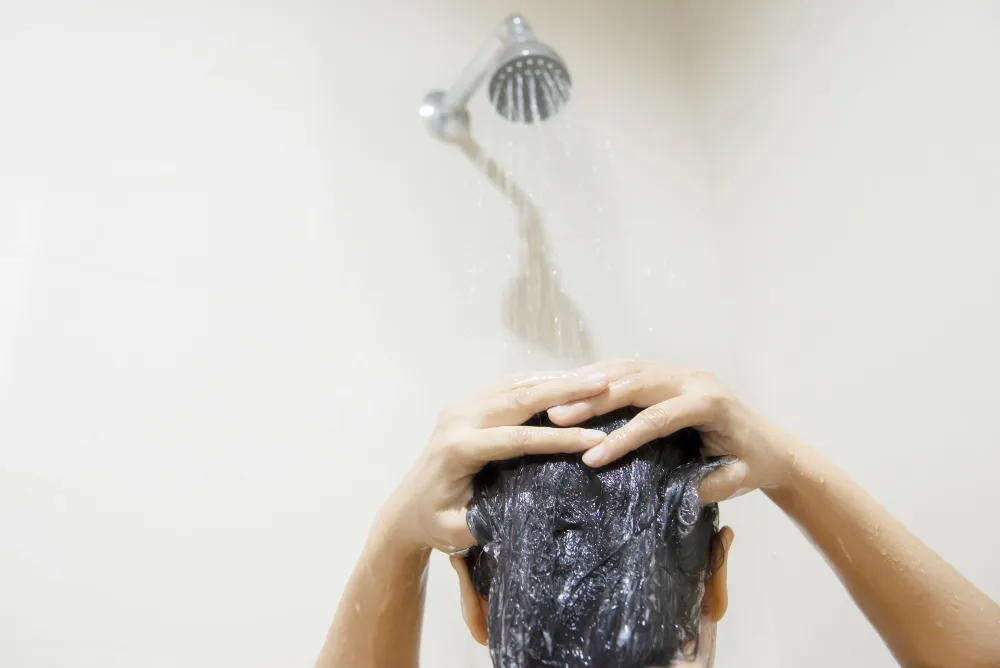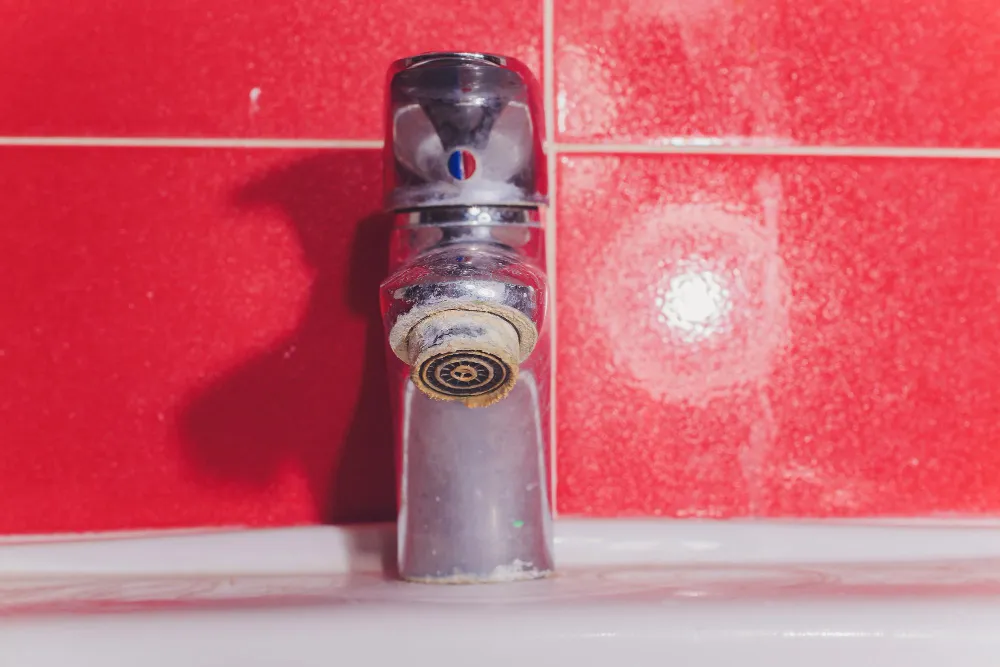Blogs
Have you ever experienced a dry feeling on your skin after using tap water? Then you probably live in one of the hard water areas.

How to Recognize Hard Water?
One way to check if you have hard water is to look at your taps and appliances. If you notice white streaks or hard deposits, that means the limescale level is high.

Hair Loss and Hard Water: Is There a Link?
Several studies have shown that hard water exacerbates dermatological problems. The scalp can also be affected if a person has too much hard water in their home.
Signs of Hard Water in Your Hair
More frequent dandruff or a very sensitive scalp (pimples, itching) is a sign that hard water is affecting your hair. Lengths become coarse in certain types of hair, such as curly or very porous hair. Hard water damages the hair fiber, causing dryness, split ends, and dullness, making the hair brittle. Over time, this can result in hair loss.
Ways to Reduce Hard Water in Your Hair
Here are a few ways to reduce the impact of hard water on your hair:
- Spare your shampoos: Avoid constant contact with hard water to reduce its effect on your hair.
- Don’t use tap water for your hairstyles: Replace tap water with bottled or demineralized water for washing your hair.
- Use an anti-limestone shower head: Consider investing in a showerhead that filters out limescale.
- Invest in a water softener: Installing a water softener in your home can significantly reduce the effects of hard water.
Protect Your Hair
To protect your hair from the damaging effects of hard water, consider incorporating these solutions into your hair care routine. If you're still experiencing damage or hair loss, consult with a dermatologist to determine personalized solutions.
Book Your Consultation